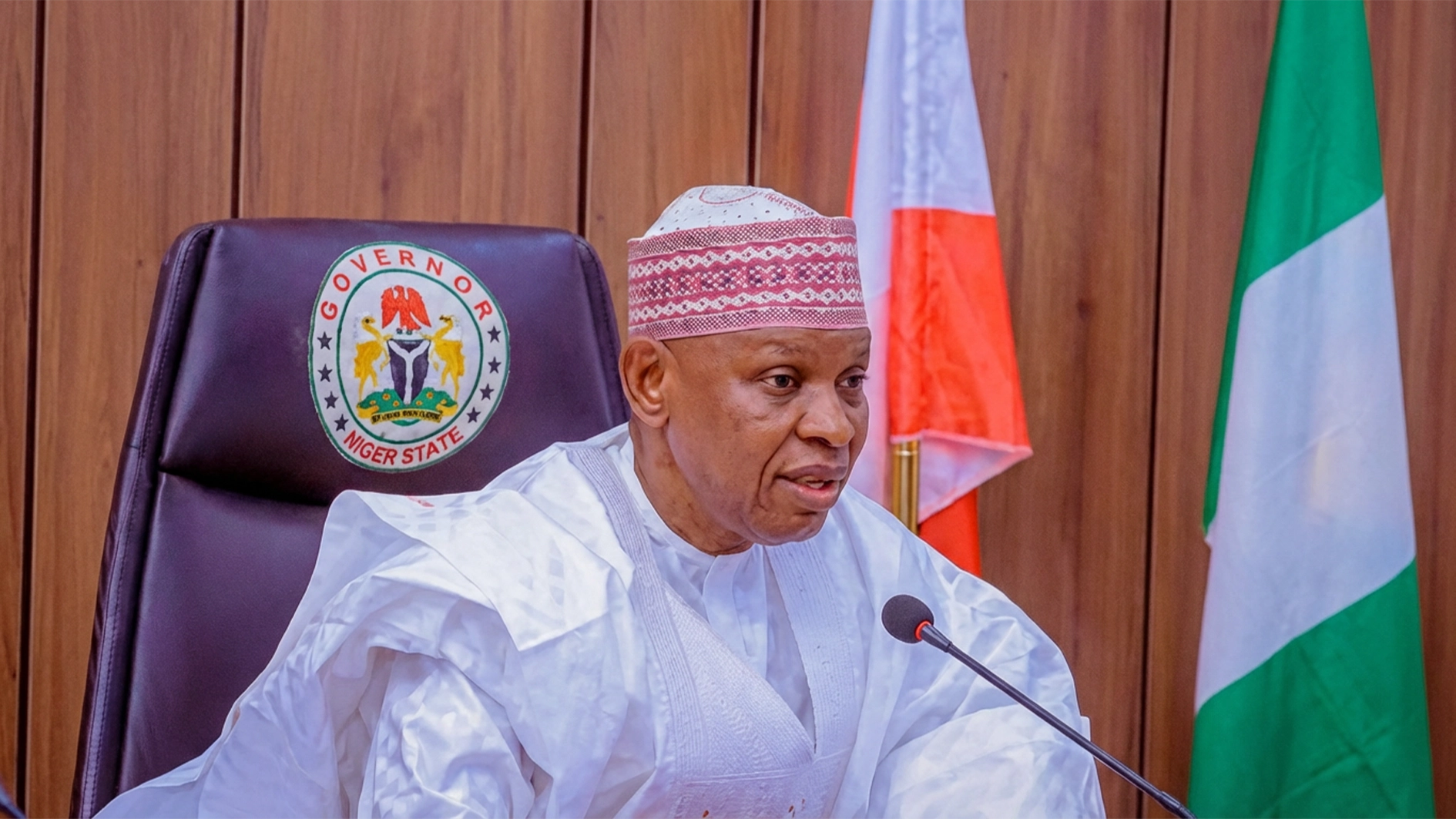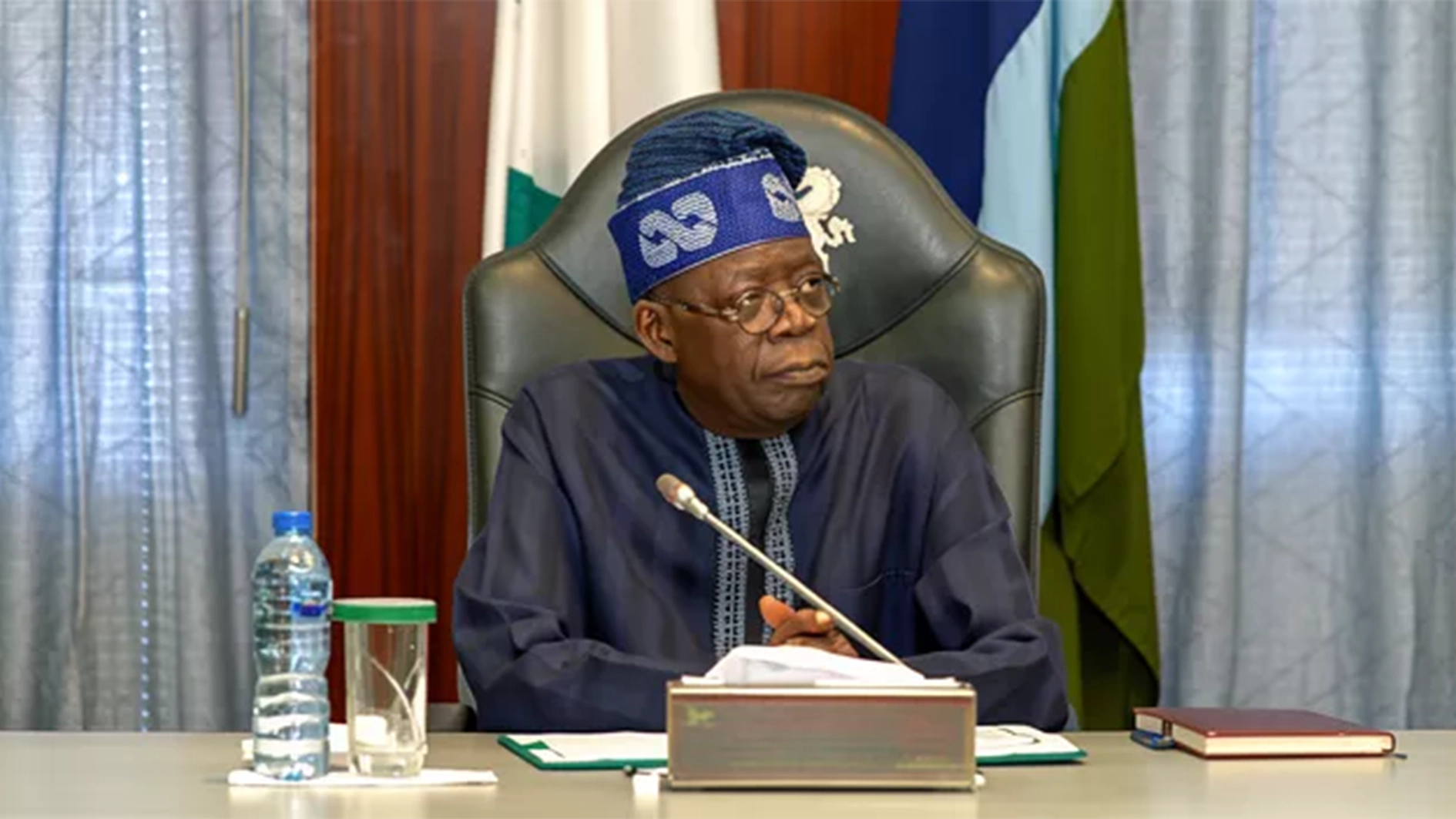The former Southeast presidential campaign spokesman to Bola Tinubu, Denge Josef Onoh, has countered a publication attributed to Jibrin Okutepa (SAN) regarding the eligibility of former President Goodluck Jonathan to run for president if he eventually decides.
Onoh, while addressing journalists in Abuja on Wednesday, said that ordinarily he would not have graced Okutepa with a response, but that, being a Senior Advocate of Nigeria (SAN), Okutepa’s errors erode institutional integrity.
Onoh stated that, under the provisions of the Constitution of the Federal Republic of Nigeria 1999 (as amended), particularly Sections 135, 137, 142, and 180, as well as settled judicial precedents from the Supreme Court of Nigeria, the narrative advanced by Mr. Okutepa, while cloaked in legal rhetoric, fundamentally misinterprets the Constitution, conflates distinct tenures, and engages in speculative arithmetic that lacks basis in law.
Onoh said that such a position is not only meritless but unbecoming of a Senior Advocate of Nigeria (SAN), whose rank demands fidelity to precision, precedent, and the avoidance of partisan conjecture masquerading as jurisprudence.
In his words, “A SAN is expected to illuminate the law, not inflame political discourse with flawed analogies.”
Onoh, while dissecting key assertions in the publication and demonstrating their constitutional infirmity and evidentiary void, said that Okutepa’s assertion that the 1999 Constitution sets a clear limit of two terms for any president is partially accurate but selectively truncated to mislead.
“Section 137(1)(b) of the 1999 Constitution indeed disqualifies a person from presidential candidacy if they have been elected to such office (President) at any two previous elections,” Onoh held.
He said that the operative phrase is ‘elected,’ which presupposes successful electoral victory and not mere occupancy or succession.
“The Constitution meticulously distinguishes between elected terms (full four-year mandates won at the polls) and incomplete or successor tenures (served upon assumption due to vacancy).”
He further stated that Section 135(2) explicitly limits a President’s tenure to four years from the inauguration date following an election, but that Section 142(1) clarifies that a Vice-President who assumes office mid-term shall continue in office until the expiration of the period (i.e., the unexpired term) during which the person elected to that office would have continued in office.
“Critically, this successor period does not count as an election under Section 137, nor does it trigger the two-term disqualification.”
Onoh said Mr. Okutepa’s blanket invocation of ‘two terms’ ignores the textual distinction, treating succession as equivalent to election—a fallacy rejected by constitutional scholars and unchallenged in practice.
“No provision in the Constitution aggregates years served across tenures; it counts elections won, not calendar time. So Mr. Okutepa’s narrative lacks merit because it invents a total years cap (e.g., eight years) that exists nowhere in the grundnorm, rendering it extra-constitutional and politically motivated speculation.”
Onoh said that, regrettably, such jundicied narrative was not expected from a Senior Advocate of Nigeria per the Legal Practitioners (Senior Advocate of Nigeria Privileges and Functions) Rules 2006, which stipulate that such an SAN must uphold “the highest standards of learning and advocacy.”
“Conflating elected and successor terms is an elementary error, not advocacy; it smacks of theatrical posturing to sway public opinion against a perceived political rival, undermining the Bar’s ethical mandate under Rule 1 of the Rules of Professional Conduct for Legal Practitioners 2007.
“Secondly, Okutepa’s assertion that Jonathan has already spent six years in office, and another four years would take his total tenure to ten years, which is above the constitutional limit of eight years, is false. Okutepa’s arithmetic is constitutionally irrelevant and a red herring, because the 1999 Constitution imposes no aggregate years limit on presidential service. Eligibility turns solely on the number of times elected (Section 137(1)(b)).
“Former President Goodluck Jonathan served approximately two years (May 2010–May 2011) as successor to the late President Umaru Musa Yar’Adua, completing the unexpired 2007–2011 term under Section 142(1). He then won one election in 2011 (57.9% of votes, per INEC), serving a full term (2011–2015) under Section 135(2). He has never won a second election, having lost in 2015 (48.65% to Muhammadu Buhari’s 53.01%).
“A 2027 run, if he decides, would be for his second elective term—expressly permitted, as the successor period (under two years) does not count toward the disqualification threshold.”
Onoh said that the ‘six years’ claim by Okutepa erroneously lumps the successor tenure with the elected one, ignoring Section 142’s carve-out for “unexpired periods.” Supreme Court jurisprudence, including A.G. Plateau State v. Goyol (2007) 18 NWLR (Pt. 1065) 115, affirms that successor tenures are not elective and do not erode eligibility for two full elected terms. Mr. Okutepa’s “ten years” projection is speculative fiction, devoid of legal tether, and contradicts the Constitution’s election-centric framework. It lacks merit as it fails the ejusdem generis rule of interpretation (items of the same kind), where “elected” modifies only poll-won terms.
“May I remind Okutepa that SANs are barred from ‘misleading the court or public on the law’ (RPC Rule 10). Peddling a non-existent ‘eight-year cap’ is not legal analysis but populist alarmism, eroding public trust in the judiciary and betraying the conferment of Silk for ‘distinguished service to the legal profession.'”
Thirdly, Okutepa’s assertion that “Jonathan first became president in 2010 after the death of President Umaru Musa Yar’Adua. He completed the remaining two years of that tenure,” Onoh stated, is factually correct but legally incomplete.
Jonathan assumed office on 6 May 2010 via constitutional succession (Sections 141–146), serving the remainder of Yar’Adua’s 2007-elected term. This was not an “election” but a continuance under Section 142(1), which mandates the Vice-President to “complete the period” without a fresh electoral mandate. The National Assembly’s Doctrine of Necessity resolution (9 February 2010) merely empowered acting powers; it did not convert the role to an elected term.
Onoh said that Mr. Okutepa stops short of acknowledging that the ‘completion’ was non-elective and thus immaterial to Section 137’s disqualification.
“Let me educate Okutepa on historical precedent: Vice-President Yemi Osinbajo’s multiple acting stints (2019, 2021–2022) under President Buhari did not diminish Buhari’s eligibility for his second term. Jonathan’s case is analogous. His successor service preserved, not consumed, his two-term quota. Okutepa’s narrative lacks merit as it weaponizes a conceded fact to imply ineligibility, a sleight-of-hand debunked by plain reading of Sections 135(1)(a) and 142.
“It is important I remind Okutepa that ethical advocacy demands candour towards the tribunal (RPC Rule 15); omitting the non-elective nature here is disingenuous, prioritising political narrative over holistic exposition—a tactic unfit for one who swore to uphold the Constitution upon elevation to SAN.
“Fourthly, Okutepa’s statement that ‘Later, Jonathan contested the 2011 election and served a full four-year term,’ although accurate, was his first (and only) elective term. Sworn in on 29 May 2011, post-victory, it ran to 29 May 2015 (Section 135(2)). His 2015 loss exhausted neither his eligibility nor the constitutional clock, leaving him free for one more elective contest.”
Onoh said that by isolating his first presidential electoral victory as the second term, Mr. Okutepa implicitly double-counts the prior successor period—a logical non sequitur.
“Section 137 counts elections, not oaths or inauguration. With only one prior election won, Jonathan remains eligible. Okutepa’s claim lacks merit, as it defies the in pari materia canon (harmonising related provisions like Sections 137 and 142), which treats successor service as tenure-fulfilment, not term-consumption.”
Onoh said that SANs must avoid even the appearance of professional impropriety (RPC Rule 1). Okutepa’s framing of a single elective term as disqualifying is not advocacy but advocacy’s antithesis: partisan distortion that invites Bar sanctions for conduct unbecoming.
“Fifthly, Okutepa’s assertion that the lawyer insisted the Constitution and Supreme Court rulings prevent anyone from staying in office beyond two terms of four years each is misleading. Okutepa referred to the case of Marwa v. Nyako, where the apex court held that no governor or president should exceed the set tenure.
“May I enlighten Okutepa in respect of Marwa v. Nyako (2012) 15 NWLR (Pt. 1323)? Clearly, the ruling is inapplicable and cherry-picked. That case addressed gubernatorial tenure under Section 180(2), where re-run elections (due to disputed 2007 polls) led to dual oaths, with the Supreme Court ruling that tenure commences from the first oath (29 May 2007), not the re-run oath (2008), to prevent extension beyond eight years total for two elected terms. It emphasised no extension via electoral irregularities but did not address succession or aggregate years for presidents.
“For presidents, Buhari v. INEC (2008) 19 NWLR (Pt. 1120) 246 reinforces that disqualification hinges on elections, not service duration. Jonathan’s successor tenure (non-elective) fits neither Marwa’s re-run context nor its holding.”
Onoh held that Okutepa’s Marwa analogy
fails—governors take oaths post-election; presidents via succession do not exceed terms absent a second election.
“Mr. Okutepa’s extension to presidents invents cross-office fusion unsupported by Section 315(5)(c) (uniform executive tenures). His narrative collapses under scrutiny, as no court has ever barred a one-term elected president with prior successor service; it lacks merit, being obiter dictum abuse, not ratio decidendi application.”
Onoh said that emphatically no precedent demands stare decisis fidelity (Section 6(6)(c)).
“Misapplying Marwa (a gubernatorial case) to presidential eligibility is judicial activism, not interpretation—hallmarks of political theatrics over legal erudition, contravening the SAN oath to ‘fearlessly uphold the law.'”
“Finally, Okutepa’s narrative lacks merit and betrays SAN standards. Mr. Okutepa’s publication is a house of cards: built on misread sections (e.g., ignoring ‘elected’ in Section 137), inapposite precedents (Marwa’s irrelevance), and invented limits (‘eight years’ phantom). It lacks merit because it fails constitutional hermeneutics—literal (textual clarity), golden (avoiding absurdity), and mischief (defeating no intent to bar successors). Jonathan’s record—one election won, one successor served—mirrors global norms (e.g., U.S. 22nd Amendment’s election-count for Lyndon Johnson post-Kennedy).”
Onoh said that such errors from a SAN erode institutional integrity, suggesting motivation by 2027 political currents rather than dispassionate counsel.
“My loyalty is strictly to President Tinubu. I urge restraint in legal discourse; the Constitution is no playground for theatrics. I will not, in good conscience, allow political jobbers to mislead President Tinubu as they did former President Jonathan; hence, I shall engage with meaningful and unbiased views ahead of 2027. If President Jonathan eventually decides to join the race, we will not be deceived to hope on litigation to win a second term in office. We welcome former President Jonathan into the race if he eventually decides and look forward to constructive political engagements and debates during the campaigns.
“We look forward to his esteemed presence at Eagle Square for the second-term inauguration of President Bola Ahmed Tinubu on 29 May 2027,” Onoh said in finality.






